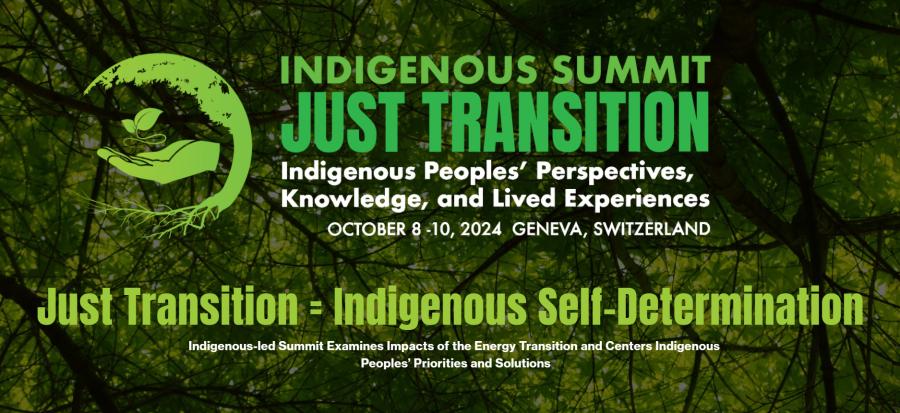On February 27 - March 2, 2023, three Indigenous leaders are meeting with European Union Parliamentarians in Brussels, Belgium, to bring attention to the impacts the extractive industries including oil, gas, and mining have on Indigenous Peoples’ rights, lands, and environments globally. These meetings are co-organized by Transport & Environment, Catapa, European Environmental Bureau, and Cultural Survival to discuss the EU’s proposed Corporate Sustainability Due Diligence Directive.
Galina Angarova (Buryat) is the Executive Director of Cultural Survival and the Chair of the Executive Committee of the Securing Rights Indigenous Peoples’ Rights in the Green Economy Coalition. Edson Krenak (Krenak) is Cultural Survival’s Lead on Brazil and Lesley Muñoz Rivera (Colla) is from the community of Copiapó in Chile which is defending their territory against the mining of gold, boron, silver, copper, and increasingly against lithium. She serves on the board of the Observatorio Plurinacional de Salares Andinos (OPSAL) which focuses on the defense of the Andean wetlands and salt flats.
Cultural Survival’s interventions address broad issues of extraction on Indigenous Peoples’ lands including oil and gas, and more specifically on transition minerals such as nickel, lithium, cobalt, and copper which are used for the development of a green economy. Growing dependence on battery technology, especially for electric vehicles, requires a much higher supply of renewable energy minerals. A World Bank Group report finds that the production of these minerals could increase by nearly 500% by 2050.
Indigenous territories contain significant concentrations of untapped transition mineral reserves around the world and are under constant pressure from extractive industries. Yet, increased mining for these resources threatens Indigenous rights, territories and local biodiversity. A Just Transition to a green economy will require governments and companies involved in the new green economy to observe and implement rights enshrined in the UN Declaration on the Rights of Indigenous Peoples, including the right to Free, Prior and Informed Consent.
Facts:
- The impact that the extractive industry has, specifically on Indigenous Peoples, cannot be overstated. The Business and Human Rights Resources Centre reported in 2021 that there had been 495 human rights allegations made against all 115 companies involved in transition mineral extraction over a period of 10 years.
- International Energy Agency forecasts that mineral requirements for clean energy technologies will quadruple by 2040
- Indigenous territories contain significant concentrations of untapped heavy metal reserves around the world. Data shows that in the United States, 97% of nickel, 89% of copper, 79% of lithium, and 68% of cobalt reserves and resources are located within 35 miles of Native American reservations.
- According to the International Energy Agency, the average electric car requires six times the mineral inputs of a conventional gas-powered car.
A Just Transition to an equitable future must include solutions that are not only mining centered to meet rising demands, but also more sustainable solutions in order to protect biodiversity and the rights of Indigenous Peoples around the world.
Cultural Survival’s delegation will also be speaking at the event “Putting Rights First in the Green Transition: Due Diligence, Environmental Justice and the Right to Say No” at the EU Parliament on February 28, 2023, at 17:00 CET. The event will be live-streamed here. They will also be participating in meetings regarding the upcoming Critical Raw Materials Act, as well as meeting with the Special Rapporteur for Environmental Defenders and other stakeholders.
"As the world scrambles to address the climate crisis, a new 'green' economy is rapidly emerging. However, in this transition, Indigenous Peoples are facing a new wave of extractivism for transition minerals such as copper, nickel, cobalt, and lithium, which are key in battery development for electric vehicles and other technologies. On the surface, transition minerals bring the promise of a perfect solution to combat climate change and reduce CO2 emissions, and relief from a future dependent on fossil fuels. However, there is a large upfront cost related to their extraction: where these minerals are found also overlaps with Indigenous lands and territories. Indigenous lands, territories, and resources are under direct threat as the demand for these minerals increases," says Galina Angarova.
"The demand for minerals by the European industry due to the so-called 'energy transition' makes Argentina, Bolivia, and Chile governments approve projects or promote lithium extraction policies, violating the human rights of Indigenous Peoples, especially the right to Free, Prior and Informed Consent. In addition, governments promote these policies without caring or being sure of the future damages that such extractions will have on Indigenous territories,” says Lesley Muñoz.
Media Contacts:
Agnes Portalewska agnes@cs.org
Marco Lara marco.lara@cs.org



